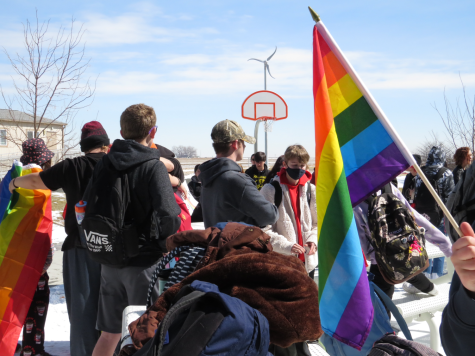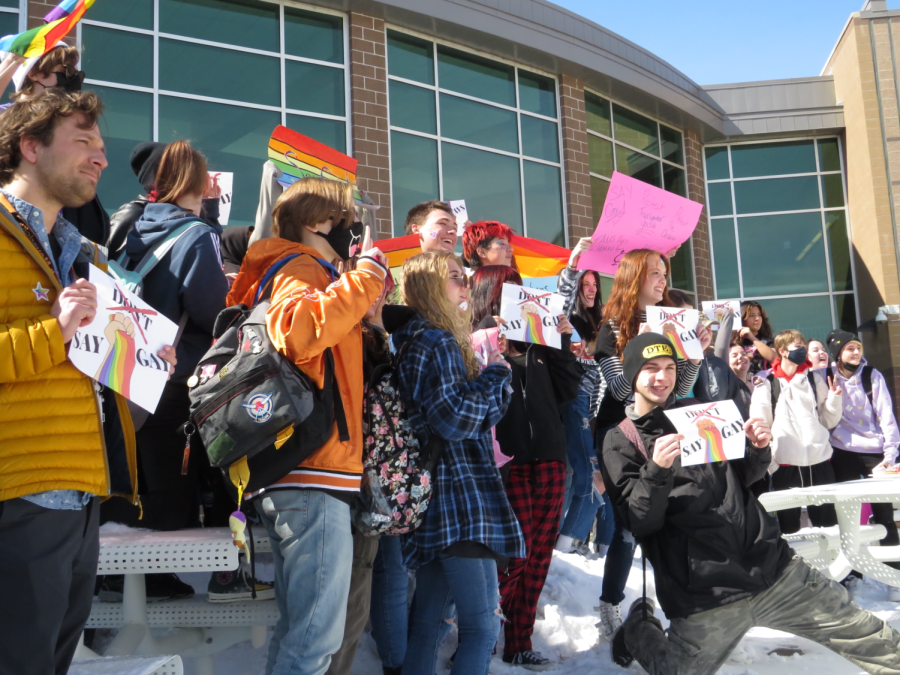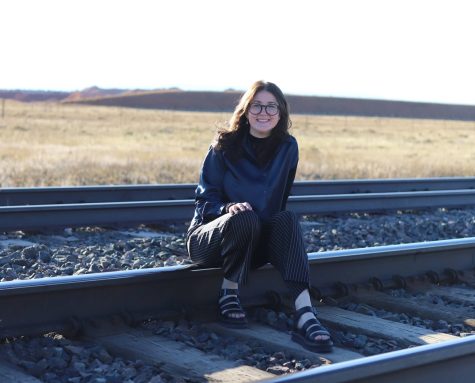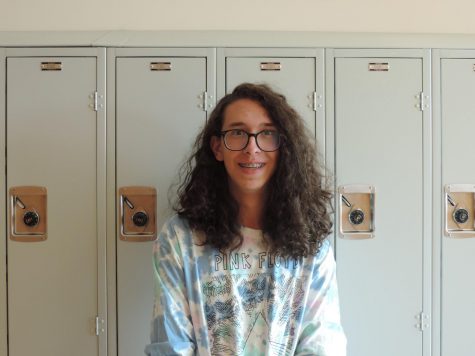MHS students protest Florida “Don’t Say Gay” bill
Mead students gathered to protest Florida’s new “Parental Rights in Education” bill on Friday, March 11
Mead High students brought everything from pride flags to decal stickers to handmade posters to the protest on Friday March 11 during Mav20 and first lunch.
March 11, 2022
MHS students gathered in the outdoor courtyard and basketball court at the back of the school building from 11 a.m. to 12 p.m. on March 11 in protest of the LGBTQ+ Florida “Don’t Say Gay” bill.
This bill, officially titled Parental Rights in Education, actively fights against queer-related discussions and topics in Florida school lessons. The bill specifically bans “lessons about sexual orientation… in kindergarten through third grade” and “also prohibits lessons in other grades unless they are ‘age-appropriate and developmentally appropriate’”.
This bill is in response to the traditionally liberal push for critical race theory (CRT) action, a social movement that has recently increased in its intensity and successes according to some. Though CRT focuses on systemic racial discrimination and socially fighting against that through education, it relates to LGBTQ+ discrimination because both are minority communities who’s history can arguably make students uncomfortable in class.
Liv Avery (‘23) attended the protest and stated that there were more people showing their support for shutting down the bill than she initially expected to be there.

She shared that it only made sense for her to support the protest given her positive stance on the LGBTQ+ community. “I’m a huge advocate for people’s independence and rights… so I supported [this] cause,” Avery (‘23) said.
Though she personally didn’t see any teachers join the active protesting itself, she said “there were a lot of teachers that put some supportive LGBTQ signs in their windows around the court[yard]”.
The restriction of inclusive lessons and messages in Florida schools, Avery (‘23) shared, is inherently morally wrong. She said LGBTQ+ lessons include “valuable information” for all to know in the school system as we work to better integrate LGBTQ+ rights into our society.
Tyler Porter (‘23) also attended the protest. He said, “I attended… to stand with myself, a bisexual, but also with my friends as we stand up for something we believe in.”
Despite the protesting being a “productive and positive environment”, as described by Avery (‘23), other students shared there was some backlash.
Porter (‘23) said during the protest there were Mead students “recording a[nd] laughing” at those in the courtyard.
But even with backlash, Porter (‘23) believes the impact of First Amendment protected free speech and assembly is incredibly important in the high school setting, especially as we near the threshold of adulthood. As long as no one is being hurt, Avery (‘23) said standing up for what you believe in using free speech is a great way to express your rights.
Some students view walkouts as a crucial part of expressing your beliefs and pushing for change.
“Things like this are important because if you don’t show how you’re supporting [something] and that [these problems are] real,… nobody’s ever going to notice and nobody’s ever going to change,” shared an anonymous student present at the protest.




Kassandra Christianson • Apr 22, 2022 at 11:02 am
You did an amazing job Arizona this gave me goosebumps well reading it i really In joyed ur articles